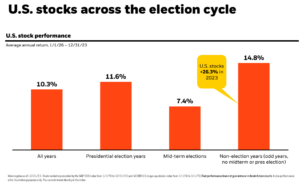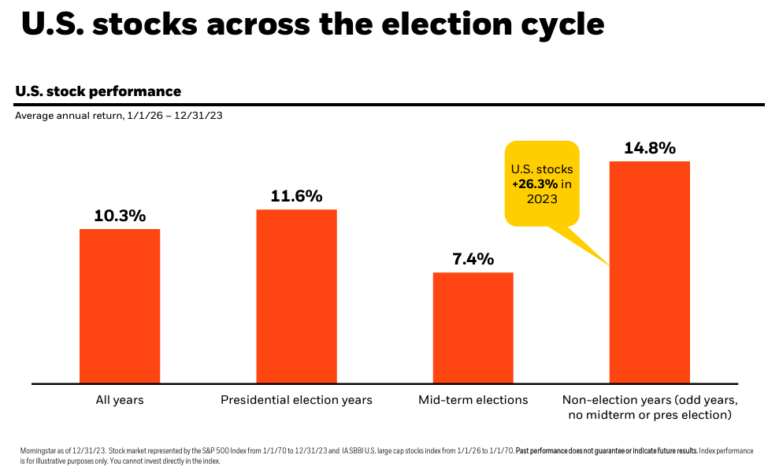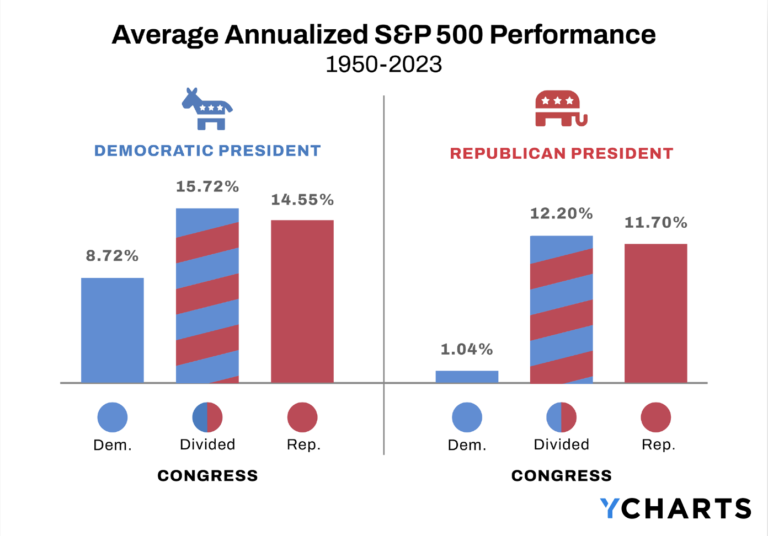The age-old question: are financial advisors worth it? Deciding whether to get a financial advisor or manage your own investments is a big decision. Not everyone needs an ongoing relationship with a financial planner or investment advisor. But many investors who would benefit from working with a wealth advisor don’t seek professional advice or mistakenly think they don’t need it. Here are a few signs that you may need a financial advisor.
If you’re not working with a financial advisor, will you really do it yourself?
Properly managing your investments and making the right financial decisions takes time, skill, and effort. It’s not a one-time thing, either. For now, let’s set aside the skills, we’ll get to that later. Time is our most precious commodity. There are plenty of things in life you could do, maybe run a marathon or learn a new language, but it doesn’t mean you’re going to do it.
Busy executives, business owners, working parents, and caretakers have a lot on their plate. Finding time to research financial questions, evaluate your options, and execute a decision takes time. (Perhaps this is why over half of 401(k) investors are invested in just one target-date fund!)
Even if you could make the time, perhaps you’d rather not if it takes time away from other things you rather do. Personal finance isn’t interesting to everyone! And it doesn’t have to be. But if you’re neglecting your finances, it’s likely worth it to hire a wealth advisor. Time is money, and there’s a cost to delaying good financial decisions or prolonging poor ones, like keeping too much cash or putting off doing an estate plan.
If you’re wondering if you need a financial advisor or if you should do it yourself, consider whether DIY investing is a realistic option. What changed so you now feel you can devote more time and energy to your investments than you have before? Do-it-yourself can easily turn into no-one-does-it. We all have a home project or two to prove it. So if your to-do list is endless and you never quite have time to tackle your personal finances, you might need a financial advisor.
 If your strategy is a blend of winging it and Google
If your strategy is a blend of winging it and Google
We don’t know what we don’t know. If you’re just Googling for answers to specific questions, how will you know you didn’t miss anything? We often find the greatest risks facing a new client weren’t even on their radar.
Our financial lives are complex and inter-related. Pulling one lever can have unintended consequences in another aspect of your life. How can you be sure you’re going to get the best outcome if you haven’t done it before? Often, what makes a financial advisor worth it is their ability to keep you on track and proactively identify financial risks and opportunities for you. We value experience in nearly every aspect of life, don’t discount it when it comes to managing your life savings.
Your finances are disorganized, and you don’t know where you stand
If your accounts are scattered across multiple institutions, it’s hard to know where you stand financially. Particularly if you don’t have a saving or investment strategy. This is another situation where it’s probably worth it to get a financial advisor instead of doing it yourself. For starters, an advisor can help you move or consolidate old 401(k)s, IRAs, and brokerage accounts in one spot or at least as few as possible.
There’s a lot that goes into your financial position. Perhaps you’re a victim of lifestyle inflation or just don’t have a grasp on your spending at all. It’s really important to know where you stand financially. Especially if you are afraid of the answer.
During this process, you can also discuss developing a cohesive investment strategy and understand how you’re tracking towards your goals. Getting organized and building a strategy going forward is a critical step. But it doesn’t just end there. People often need help implementing it, staying on track with savings goals, or revising plans when things change.
One-time financial health checkups typically fail. Getting on the right track is an important first step, but unless you’re just starting to save for retirement, insular advice will likely fall short of what you really need. Without ongoing support, recommendations likely sit idly in a desk drawer. And changes to your personal financial life keep coming. New laws, like the Secure Act 2.0, can require strategy changes, while a decline in your account could be a tax-loss harvesting opportunity.
It’s worth it to get a financial advisor before you make a life-changing decision
We have a lot of flexibility to unwind many of the decisions we make. But you can’t always rely on a take-back, especially for major financial decisions. You’ll need the tools, experience, and objectivity a financial advisor brings to help you make the best decision the first time. Because you might not get another chance.
Deciding to retire, take an early retirement buyout package, sell a business, take a lump sum over a pension, start Social Security, or buy a home with cash are some examples of major financial decisions. You may also be making a major decision by taking no action at all. For example, if you exercise stock options but don’t have a plan to sell and diversify, you risk your entire on-paper windfall if the stock sinks.
There’s no good reason to shoot from the hip with so much at stake. A wealth manager can help you quantify the decision, understand the impact on other areas of your life, and assess your alternatives. It’s often worth it to build a financial plan to help with the decision making process.
A comprehensive financial plan can help you make big financial decisions
A financial plan helps accomplish four main objectives:
- Answer the big questions. If you’re contemplating a big decision like can I retire at the end of the year, should I use a windfall to pay off my mortgage early, or how much do I need to save to retire and maintain my lifestyle, a financial model is the best way to evaluate the goal and compare alternatives.
- Incorporate the various ‘side effects’ of making a decision about your money or investments, like tax implications or funding one goal at the expense of another. Our financial lives are incredibly intertwined. Looking at it in a vacuum won’t give you the whole picture. The only way to pull it all together is through a financial plan.
- Considering and quantifying alternate paths using what-if analysis. Who doesn’t like options? Maybe you have your heart set on retiring at 55. Wouldn’t you want to know what your retirement budget could be if you worked another two years?
- Stress-test your plan with a risk simulation to help ensure you don’t run out of money. By accounting for the variation in investment returns, a risk simulation can help investors feel confident knowing the probability that their plan will succeed.
This is another part of financial planning and investing where you really need a financial advisor. If you’re not working with a professional, there’s no guarantee you’re asking yourself all the right questions or haven’t overlooked anything.
If getting a financial advisor would give you peace of mind or reduce money stress, it’s worth it
There are a lot of reasons investors choose to work with a money manager or financial planner. One reason is the peace of mind it gives individuals and their families. If busy working executives don’t have time to oversee their investments, it can become a source of stress. Or perhaps a retiree is always worrying about overspending or running out of money. And if something happens to the breadwinner and financial manager of the household, who will the surviving spouse and/or children turn to for help and guidance?
Every day, people decide they need a financial advisor to address these and other money concerns. Worries or disagreements about finances are among the top stressors for individuals and couples alike, so these issues are very real. So too are the consequences for inaction.
Finally getting your finances in order, ensuring family is cared for, or getting a grasp on your retirement plan can be empowering and liberating. Reducing or removing this source of anxiety can make working with a financial advisor worth it.
How to find a financial advisor
Unfortunately, sometimes figuring out you need a financial planner is the easy part. Navigating the sea of financial advisory firms, services, and fee models can feel overwhelming. Here are the top questions investors typically have when looking for a financial advisor.
What’s the difference between a financial advisor, wealth manager, financial planner, investment advisor, etc?
There are many synonyms for financial advisors. While there are some restrictions on who can call themselves an advisor (or adviser), it’s usually easiest to set the individual’s chosen title aside. Instead, focus on the other aspects, like services, firm structure, credentials, personality fit, fees, and so on.
How will I know my advisor is acting in my best interest?
Not all advisors are held to the same standards. A fiduciary duty is the highest standard of care under the law. Only registered investment advisors always have a fiduciary duty to act in your best interest. Other types of advisors may not be held to a fiduciary standard at all or only at certain points in the relationship, but they’re not a full-time fiduciary.
How are financial advisors paid?
Compensation methods vary between advisors. There three main types of fee structures:
- Fee-only: A fee-only advisor is only paid by their clients; they do not sell products. Fees are most often based on a percentage of investment assets the advisor manages. So as your accounts grow, the advisor does better too. The fee-only financial advisor model is typically considered the most transparent and least likely to create conflicts of interest between the client and the advisor, as sales-based incentives are removed. While many fee-only financial advisors are registered investment advisors (and fiduciaries), it is possible for a firm to be one and not the other.
- Fee-based: Fee-based advisors are typically paid in two ways: a percentage of the investor’s assets under management and by commissions from selling products, such as life insurance, annuities, mutual funds, or other investments. In a fee-based relationship, the client isn’t the only one paying the advisor. They also receive commissions and referral fees by third parties.
- Commission only: Some insurance agents, banks, stockbrokers, or large wirehouses may not charge the end client at all and rely on commissions from selling products instead. The relationship here will be the most transactional in nature and heavily focused on advice with a product-based solution.
How much does it cost to work with a money manager?
How much it costs to work with an advisor depends on the advisory firm, your situation and services. While cost is an important component, the cheapest option today might be the most expensive in the long run. Consider how advisory fees can be offset by the financial benefits an advisor can provide, and your alternatives. Due to differences in share classes, managing your own investments as a ‘retail’ investor can actually cost more.
The Vanguard Advisor’s Alpha study aims to quantify the benefits of working with an advisor. They found an advisor has the potential to add a net return of about 3% for clients, through different advisory services and an ongoing relationship.
CERTIFIED FINANCIAL PLANNER™ professionals
There are no specific educational requirements for individuals offering financial advice and financial planning. So additional credentials and designations can be helpful. Of course, there are no shortage of acronyms here either.
The CERTIFIED FINANCIAL PLANNER™ professional designation is typically considered the ‘gold standard’ for financial advisors as the Chartered Financial Analyst® designation is to asset management.
Your investments deserve more than thoughts and prayers
If your life savings need more attention than you can provide, it’s worth it to get a financial advisor. Once you decide you need an advisor, try not to let it sink to the bottom of your list. It may not seem pressing, but life happens fast, and we never know what changes are on the horizon. On the whole, financial advisors enjoy helping people. Start the conversation to see how one can help you.
This article was written by Darrow Advisor Kristin McKenna, CFP® and originally published by Forbes.
Last reviewed February 2024
Published In
Media appearances by Kristin McKenna CFP®, President, Darrow Wealth Management
Publications above reflect media organizations that have quoted and/or published articles authored by Kristin McKenna and should not be misconstrued as a current or past endorsement of Kristin McKenna, Darrow Wealth Management, or any of its advisors. Please refer to the media page for more information and links to published works.


 If your strategy is a blend of winging it and Google
If your strategy is a blend of winging it and Google









